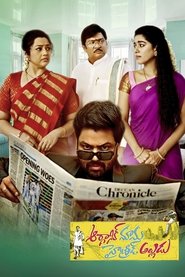
Video Sources 1686 Views
Synopsis
Love per Square Foot 2018 full Movie Download In Hindi 720p and 480p
StoryLine:
Vicky Kaushal, Angira Dhar, Alankrita Sahai, Ratna Pathak Shah, Supriya Pathak, Raghuvir Yadav, Kunaal Roy Kapur, Gajraj Rao.Love per Square Foot 2018 Movie Download.
About an hour into Love Per Square Foot, a lovely little scene roots a film in danger of overstating its theme. Bhaskar Chaturvedi (Raghuvir Yadav), a railway announcer at Dadar station for 30 years, is retiring. In the technical room that accommodates his precious announcer’s chair, his longtime colleagues – led by genial ticket collector Mishra (Brijendra Kala) – throw him a small farewell party. Also present are his doting wife, Lata (Supriya Pathak), and 29-year-old son, Sanjay (an easygoing Vicky Kaushal). Chaturvedi, who came to the city with ambitions of becoming a singer, joined the railway family in hopes of fine-tuning his voice for an opportunity that never came. After a typically self-effacing speech, Chaturvedi tears up on noticing his parting gift: a brand new harmonium. For his final assignment, he sings the opening stanzas of a classic Hindi song into the microphone, before signing off – appropriately – with an outstation-train announcement.
This is a quintessential “Mumbai” moment. It might even make for a charming short film. But it belongs to the story of an immigrant who will rarely ever headline a feature-length Indian film. Perhaps his life isn’t theatrical enough to merit a conventional 132-minute screenplay. “Love Per Square Foot” could well have even been the title of his marriage – a relationship that hasn’t been afforded the space to flounder within the cramped confines of a Railway Quarter apartment.
Or it could be the title of the story of Blossom D’Souza (a routinely brilliant Ratna Pathak Shah): a vehemently catholic single mother who has brought up her daughter Karina (an affable Angira Dhar) in her brother’s congested Bandra living room.
But then that’s the nature of a secular beast like Mumbai – the city is packed with unremarkable lives that mainstream filmmakers find hard to resist. They are the “masses” that films look to service, and yet producers don’t find them foreground-worthy enough to entertain the masses. Which is why we increasingly find excellent actors and veteran talents playing supporting roles in films centered on the orthodox hero-heroine equation. They “steal scenes” and “stand out” – because they aren’t allowed to do more.
Additional Links:
Original title
Love per Square Foot
IMDb Rating
7.2 7,354 votes
TMDb Rating
6.8 76 votes
Director
Director
Cast
Sanjay Chaturvedi
Karina D'Souza
Lata Chaturvedi
Bhaskar Chaturvedi
Mr. Rehmat
Rashi Khurana
Samuel Misquitta
Blossom D'souza
Kashin Malhotra
T.C.Mishra



























